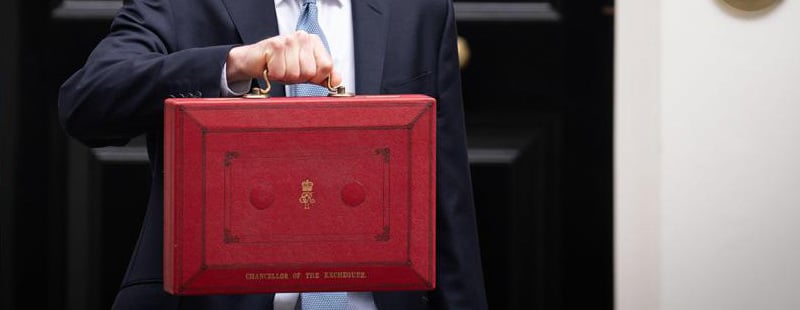The Government has revealed its latest financial plans in the Budget, with headline announcements regarding pensions, childcare costs and energy bills support.
Jeremy Hunt has delivered his first spring Budget as Chancellor, revealing the Government’s plans for spending and taxation in the next financial year and beyond.
It comes as people across the UK continue to struggle with the ongoing cost-of-living crisis, with inflation remaining in double digits at 10.1% in January. This was one area where the Chancellor had some positive news to share with consumers, as forecasts suggest the inflation rate will fall to 2.9% by the end of this year.
But with general living costs still unusually high for now, there was a lot of interest in Budget measures that could ease the financial pressure on struggling households. Here are some of the key announcements and what they could mean for your finances.
Pension allowances overhauled
Pensions are a big financial consideration for Police Officers and Staff, and the Spring Budget included some key reforms in this area.
Until the end of the 2022-23 tax year, every adult in the UK will have an annual pension allowance of £40,000. This is the most you can save in your pension pots in a financial year before you have to pay tax.
The current lifetime allowance (LTA) is £1,073,100. You’ll usually pay tax if your pension pots are worth more than this amount.
However, the Government is making major changes to both of these rules.
Annual pension allowance increased
The annual pension allowance will increase from £40,000 to £60,000 as of April 6th 2023. Before this announcement, the allowance had been frozen for nine years.
If you earn less than £60,000 a year, your tax-free pension savings allowance will be limited to your annual income. Anyone who earns more than this amount will be able to save up to £60,000 and still receive tax relief, as well as having the option to claim back unused amounts from the past three years.
If you’d like to get a better understanding of how you might be affected as someone working in the Police Service, come along to one of Metfriendly’s pension ‘myth-busting’ webinars.
In the next webinar on March 29th, we’ll cover all the changes announced in the Budget and how they relate to pensions, as well as the normal agenda of facts and questions about the Police Pension. You can sign up for that event here.
Lifetime allowance abolished
The lifetime tax-free pension savings allowance of £1,073,100 is set to be abolished from April 2024. The LTA charge will also be removed from April 6th 2023.
Workers will therefore be able to grow their pension pots beyond £1,073,100 without facing punitive tax charges.
The Government said the aim of these policies is to “remove the disincentives to working for longer”, amid concerns about higher earners at later stages in their careers retiring early to avoid taking a tax hit.
It’s also worth noting that the total tax-free lump sum you can take from your pension will remain capped at 25% of the current LTA (or £268,275) from April 6th 2023.
Money purchase annual allowance increased
The money purchase annual allowance (MPAA) is the amount you can pay into your pension every year if you’ve already started to take money out of it. This applies if you want to take money from your pension, but pay some back in later.
The MPAA will be increased from £4,000 to £10,000 from April 6th 2023. This means, if you’ve already accessed income from your pension, you’ll be able to pay up to £10,000 back into it each year and still receive tax relief.
This is another part of the Government’s drive to keep older people in the workforce, as it provides more scope for those who have already taken money out of their pension fund to rebuild it without facing tax charges.
Energy price guarantee extended
The Government introduced the energy price guarantee on October 1st 2022 in an effort to protect consumers from rising prices by reducing the unit cost of gas and electricity. This meant the typical household would face energy bills of £2,500 a year, on average, based on dual fuel tariffs paid by direct debit.
While the guarantee was initially due to end on March 31st 2023, meaning typical bills would rise to £3,000 a year, the Government has now confirmed that it has been extended by three months until the end of June.
Mr Hunt said energy bills are set to fall from July onwards, and this temporary measure will “bridge the gap and ease the pressure on families”.
However, the £400 discount that all households received on their energy bills over the 2022-23 winter period hasn’t been extended. You’ll see the final £67 instalment in this discount deducted from your energy bill in March.
Users of prepayment meters will see their energy charges brought down to align with the prices paid by direct debit customers. This is expected to affect approximately four million households.
Childcare cost support increased
Another headline announcement related to working parents, who will be able to access increased support for childcare costs over the next two and a half years.
At the moment, parents who work are offered 30 hours of free childcare per week for three and four-year-old children, but this will be gradually extended to cover all children aged between nine months and five years. The changes will be phased in across the following stages from April 2024:
- April 2024: 15 hours of free childcare introduced for two-year-olds with working parents
- September 2024: 15 hours of free childcare extended to children from nine months
- September 2025: 30 hours of free childcare available to all eligible under-fives
This is part of a Government drive to boost the economy by encouraging more people into work. The high cost of childcare is often cited as a reason why parents are reluctant to return to work after starting a family or are unable to work full-time.
Other measures
The Budget included many other measures that will impact the finances of Police Officers, Staff, workers and consumers, including:
- The previously planned 11p rise in fuel duty has been cancelled, meaning the 5p cut introduced last year will continue for another 12 months.
- Alcohol taxes will rise in line with inflation from August 2023, but new reliefs will mean the average duty on a draught pint of beer served in a pub will be up to 11p lower than supermarket duties.
- A £406 million plan will be launched to tackle the leading health issues keeping people out of work, with a focus on mental health, musculoskeletal conditions and cardiovascular disease.
The changes coming into effect as a result of this Budget could affect you in various ways, which means it’s more important than ever to have a clear view of your finances and how they’re changing.
You can get up-to-date information about Police pensions and other financial topics at one of Metfriendly’s dedicated seminars or webinars. Visit our Events page to see what we’ve got planned and book your place.
If you’d prefer to have a one-to-one chat with one of our financial experts, you can book a telephone or video call with us.






